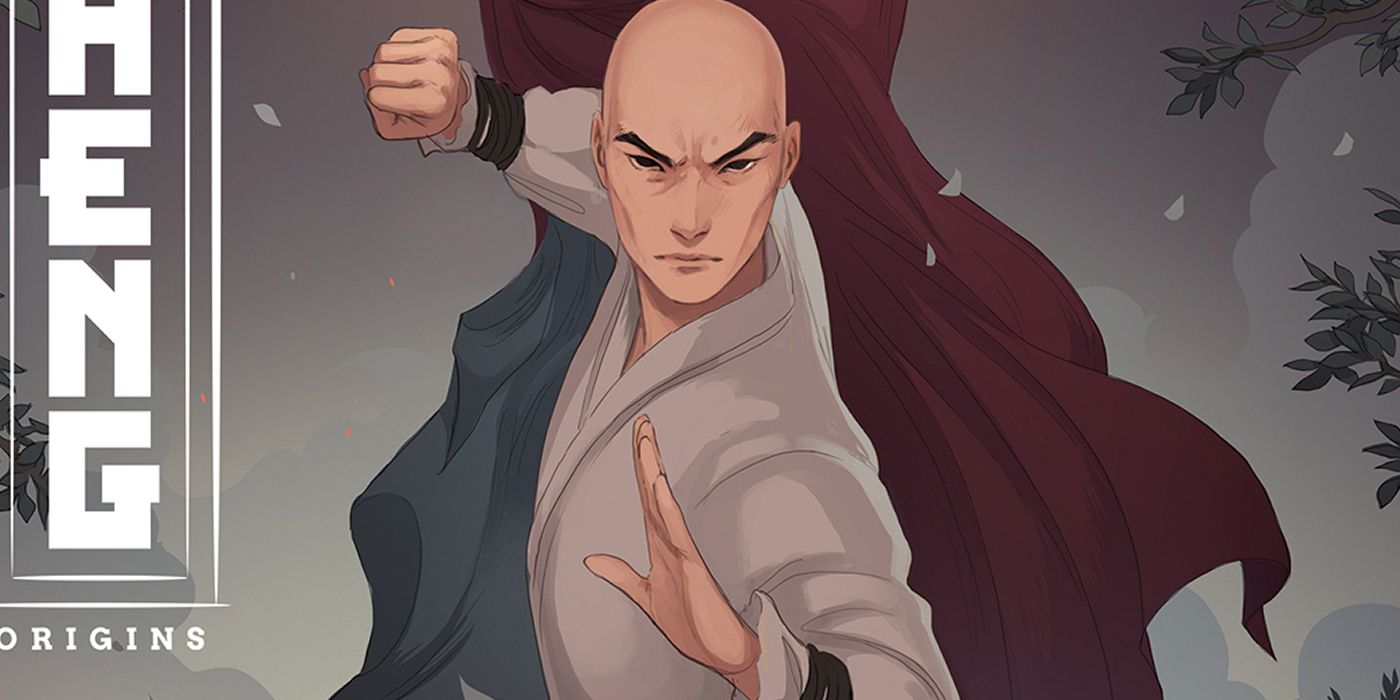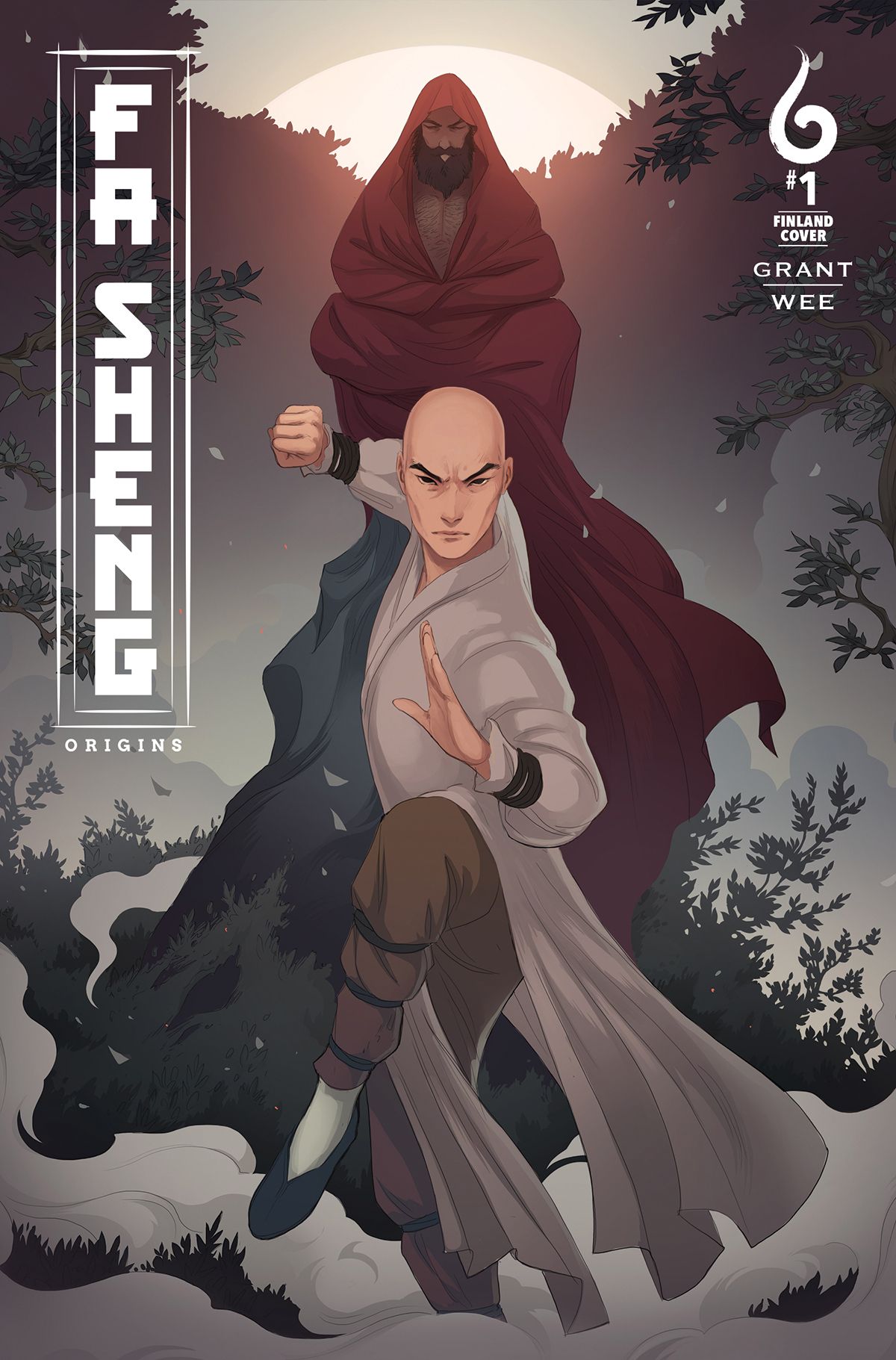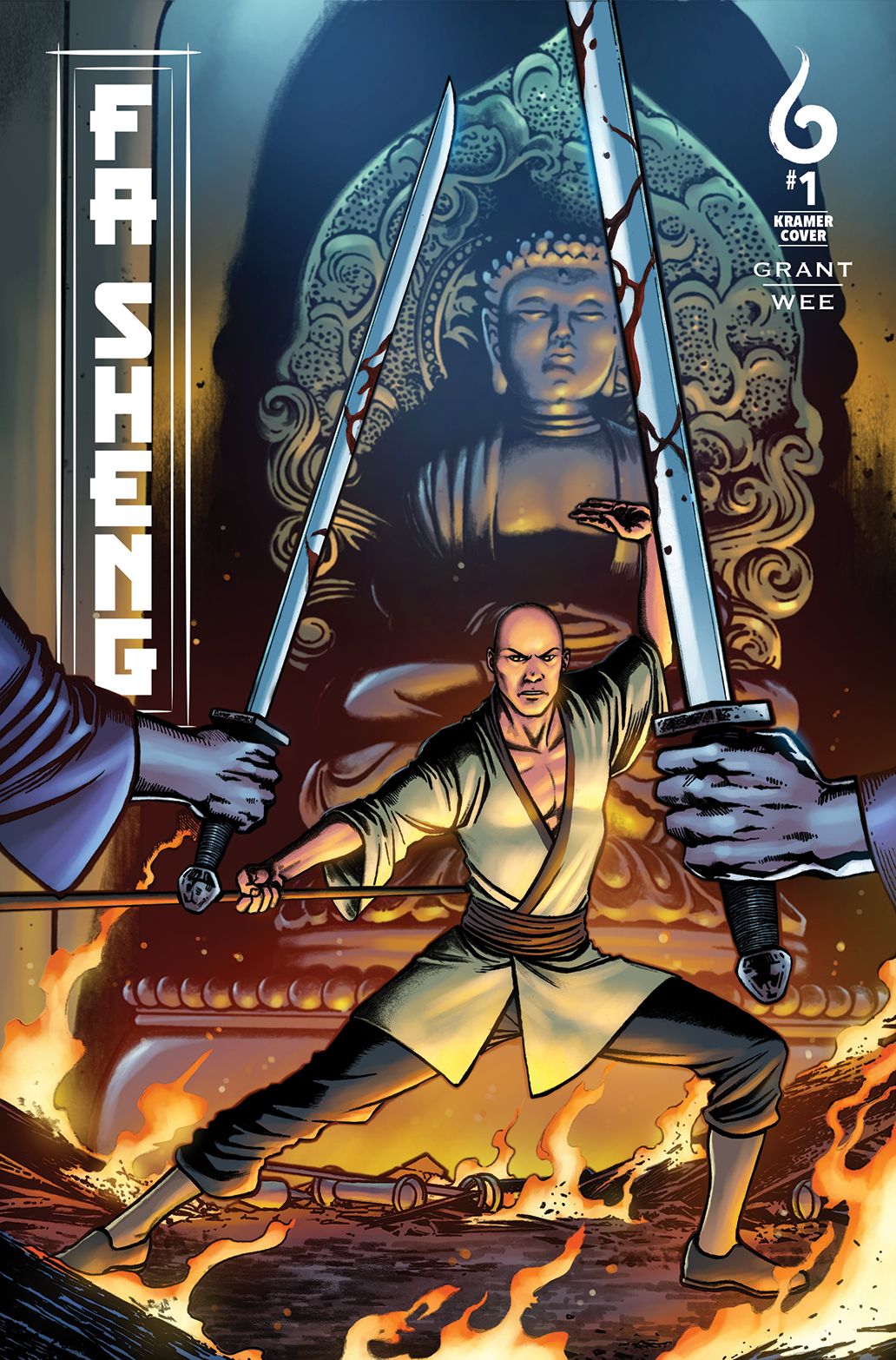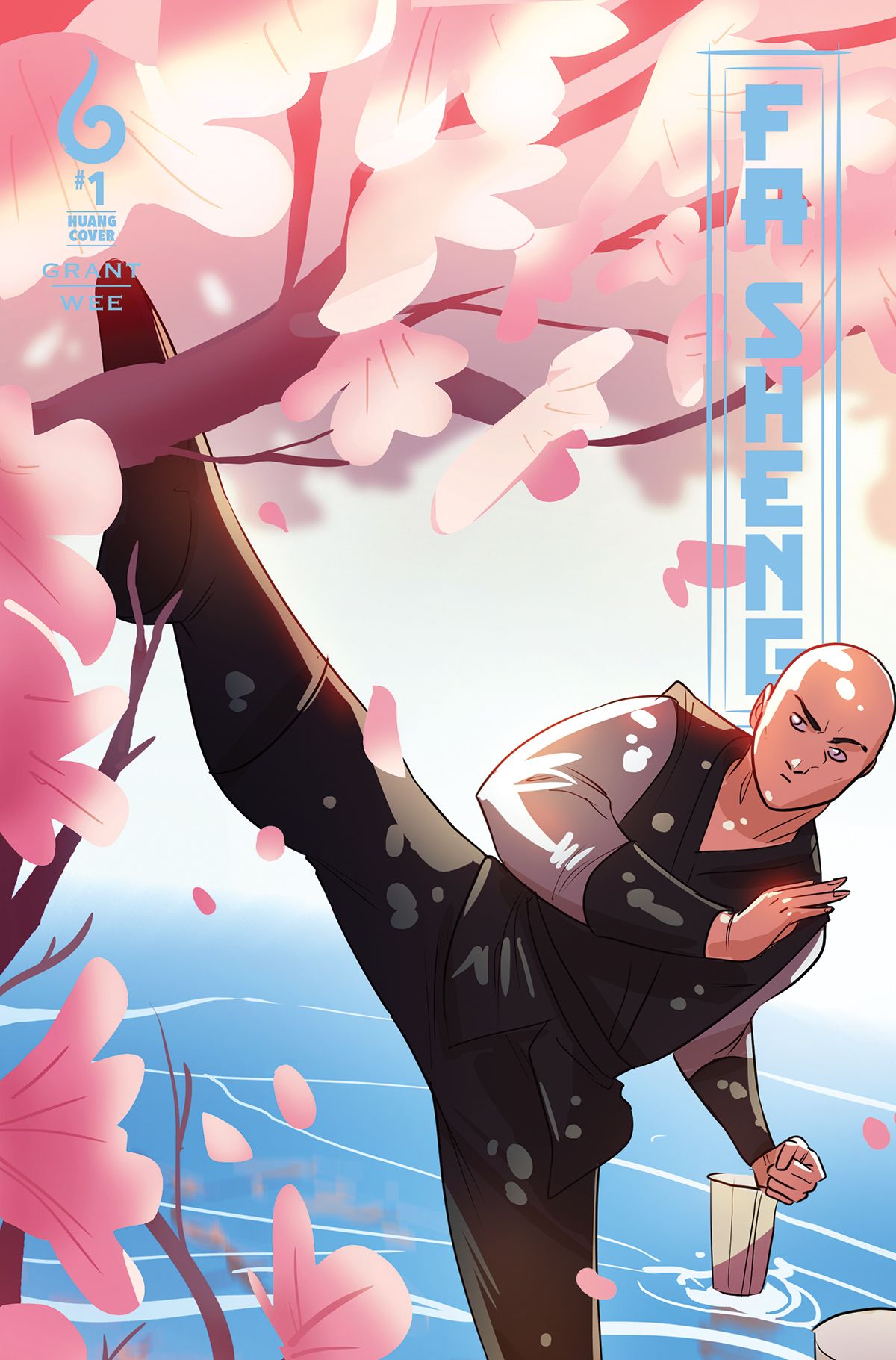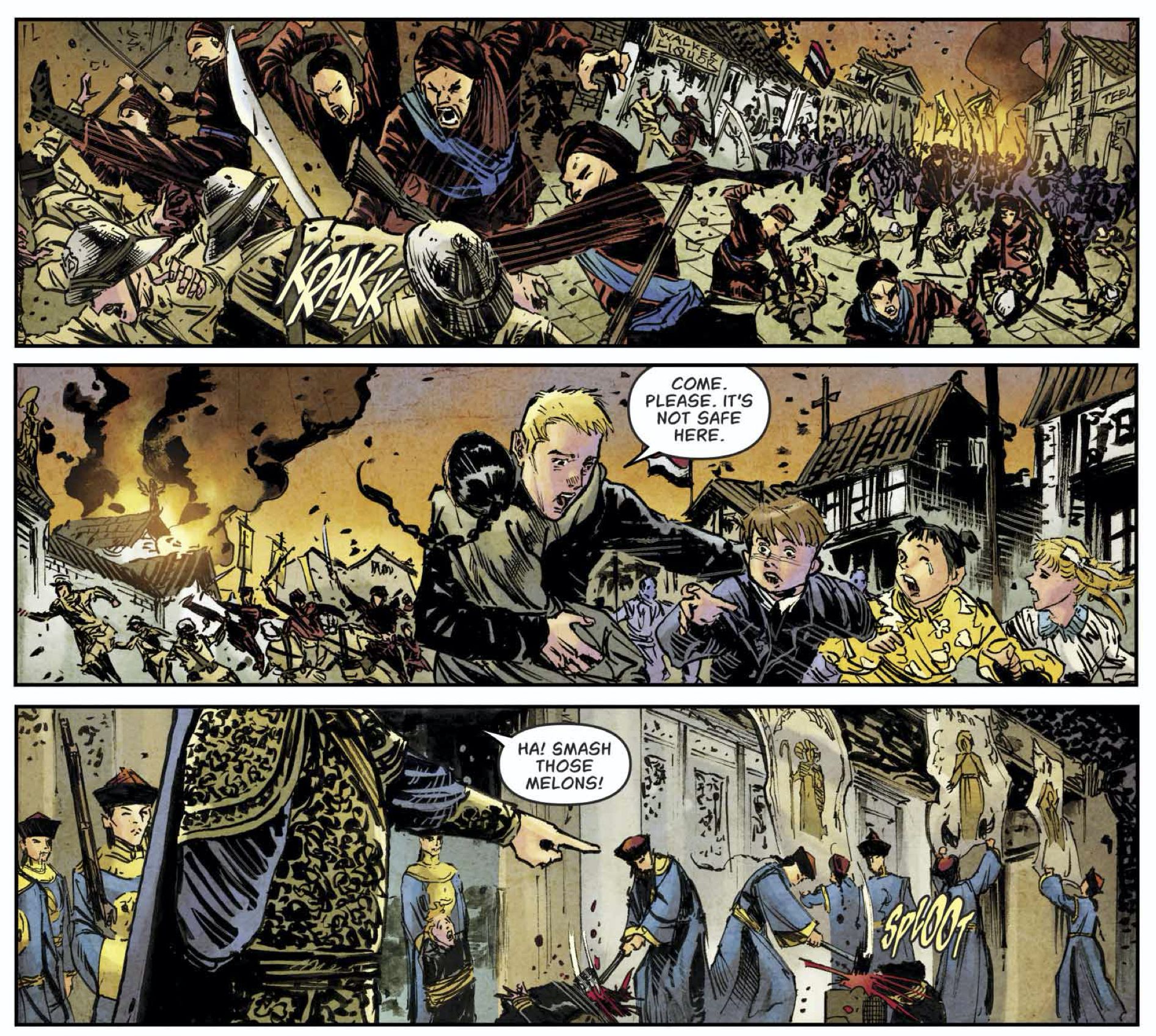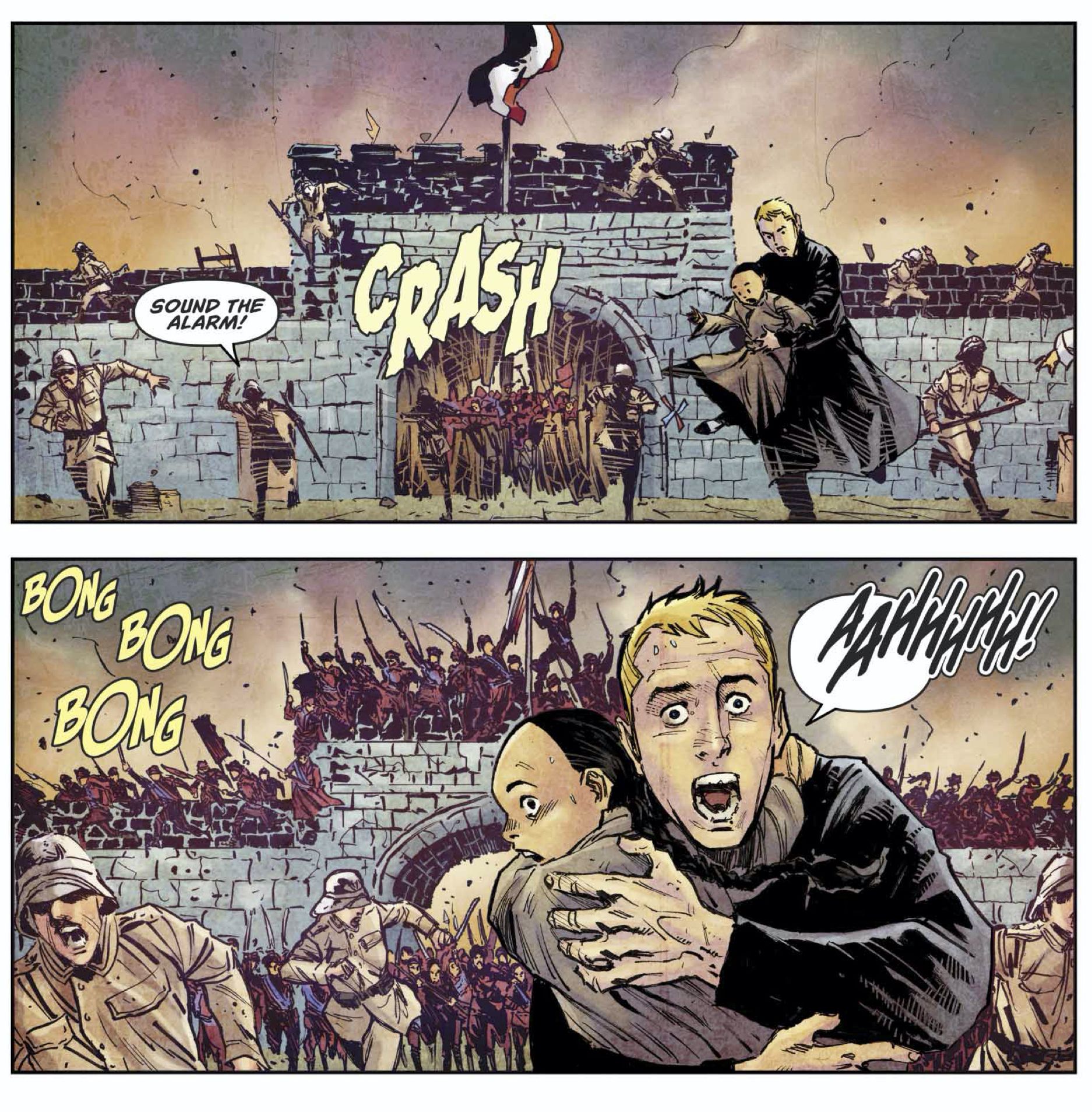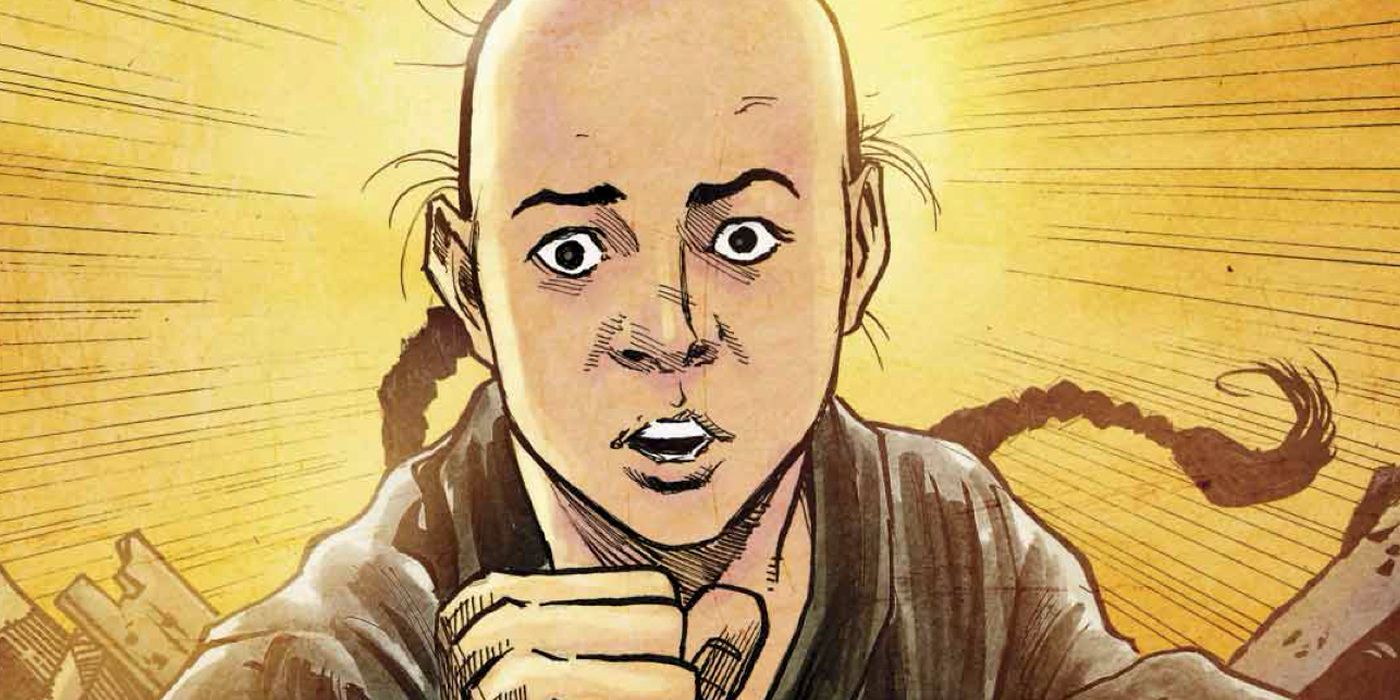The recent success of Marvel's Shang-Chi and the Legend of the Ten Rings and Gene Luen Yang and Bernard Chang's DC series Monkey Prince have helped shine a light on the fantasy martial arts genre, Wuxia. But publisher Immortal Studios has been focused on promoting and creating Wuxia since it was first created in 2020. Founder Peter Shiao -- son of renowned author Shiao Yi -- has been building the foundation for a shared fantasy universe featuring all manner of heroes.
The Kickstarter campaign for Immortal Studios' upcoming series Fa Sheng: Origins, written by Rylend Grand with art by Dexter Wee and colors from Omi Remelante Jr., launched at the beginning of May and is already fully funded. The six-issue series will follow a young Fa Sheng as he embarks on his journey to become a Shaolin Master. CBR recently spoke with the creative team and publisher Peter Shiao about the origins of the new series, their personal connections with the subject matter and their collaborative process.
Peter, could you speak a little bit about how you came up with the idea for Fa Sheng: Origins and how this story ties into the rest of the Immortal Studios' shared universe?
Peter Shiao: As someone who deals in Wuxia, there are at least a few enlightened master, legendary warrior, folk hero types of figures swimming in my head at any given time, and in the case of Fa Sheng who was a master in search of a backstory, I decided to bring a number of these influences in one character against what was, to me, a very historically significant backdrop of the Boxer Uprising, to scratch all those itches in one fell swoop. Because Fa Sheng is envisioned as a core "instigator" in recruiting awakened warriors in the Immortal Storyverse, it was important to me that he has all the bona fides of a journeyman warrior who has been through, and seen it all, from neophyte to kung fu master, bandit, monk and eventually, an awakened soul. The depth and poignancy of his journey helps us traverse some vital terrains as we ambitiously seek to bring together all the various influences of Wuxia under one roof.
How did you all begin working together?
Shiao: It all happened intentionally. One of the jobs I relish as talent recruiter in chief at Immortal is to connect the right opportunity to the person who was uniquely suited for the part. Having read Rylend's previous works, I knew the guy could write. It was a matter of connecting that talent to something that he was uniquely suited to do.
Rylend Grant: Peter and I met a few years back after a how-to panel I organized/moderated at the Los Angeles Comic Con and we really hit it off. We just had so much in common. I recognized him immediately as a fellow spiritual traveler, as someone with a really unique point of view, as someone with something real and affecting to say… and I think he saw something similar in me.
It was clear from the jump that we’d eventually work on something together. I was all in on the Immortal mission from the very beginning — it was really just a matter of finding the RIGHT project and our schedules syncing up.
Peter and I stayed close and we’d hang out from time to time, just chatting about philosophy, spirituality, life in general… well, at some point, he finally called me and said, “Rylend, I have THE project.” I was really busy at the time with film and TV stuff and didn’t know if I had the time to take on a new comic book, so I was secretly kind of hoping that this wasn’t truly THE project, but once Peter pitched to me, once I saw what he had down on paper, I was just blown away. I had to do it. I had to make time for it. I’m glad I did.
Dexter Wee: Rylend Grant contacted me first regarding the project and introduced me to editor Brian Cunningham who gave me a synopsis about Fa Sheng: Origins and a three pages test script. I love the story of Fa Sheng as it reminded me of the martial arts movies that I grew up with. I did the test page and shortly was blessed to be handed the art job.
Rylend, how has your experience as an ordained Soto Zen Buddhist monk informed your work on the series?
Grant: I happen to be an ordained Soto Zen Buddhist Monk in the lineage of Gudo Nishijima. I can literally trace that lineage, teacher-by-teacher, back to the Shaolin temple, back to Bodhidharma (a Buddhist Saint and a central character in the book) himself. So, in writing Fa Sheng: Origins, I am actually taking a really close and enlightening look at a very important link in my spiritual chain and that’s just been fascinating to do.
Fa Sheng: Origins is a story about a man, a monk, seeking insight, enlightenment, wrestling with life’s big, hairy questions. Well, I do that every day with my Zen practice. It’s been really amazing to be able to present all of that to a hungry, eager audience. In a way, I’m kind of teaching Zen with this book, passing on the knowledge that was passed down to me from those who came before me. I’m just doing it in a really fun and heightened way.
What other Wuxia stories did you all look to for inspiration?
Wee: My inspiration when I started working on the book are Jet Li's Shaolin Temple and Once Upon a Time movies. Movies that I enjoyed watching growing up. Jet Li's character in Shaolin Temple reminded me of young Fa Sheng. Avatar Aang is also one inspiration.
Grant: I have a long history with Wuxia classics like A Touch of Zen, Killer Clans, and Duel to the Death and you’ll see that influence here, but I tried hard to set that aside. Fa Sheng: Origins is a historical drama, first and foremost… I was just as influenced by things like Band of Brothers, Deadwood, and The Sopranos in writing this. I think that duality really makes this an intriguing read.
Shiao: In the case of Fa Sheng: Origins, I sought to bring the largely untold stories of the Boxer Uprising which I was always fascinated with and had the chance to explore in person not too long ago on a "roots kind of trip that I took to my grandfather's ancestral home which was home to the Boxers, and joined it in some fashion with the real-life exploits of martial folk heroes at the turn of the century Peking (now Beijing) just before legendary Kung Fu went completely underground, and finally crowned it with the many stories that I gathered from the Shaolin Temple when I was actually associated with the temple with a mad dash of Bodhidharma himself. Frankly, this level of ambition in one story continues to amaze and amuse me. What audacity!
What appealed to you about setting the story during the time of the Boxer Uprising?
Grant: As a writer, you’re usually looking for some way, any way to turn the temperature up on the characters, to really get the water boiling underneath them. That’s when the real explosive drama happens. Well, I didn’t have to work too hard to achieve that here. The Boxer Uprising – and the Warlord era that followed – were such turbulent times, historically, for China. Famine, floods, foreign invaders, coup attempts, a national identity crisis… and good, decent, honorable men and women caught up in all of it. It was a huge responsibility, being tasked with putting this historical, cultural, political, and philosophical puzzle together, but I really think this team nailed it and it's some of the most rewarding work I’ve done.
Shiao: There are many aspects of this backdrop that I find appealing, but I will just give voice to one of them here. The story of the Boxers is ultimately a tragic one because we now all know that their efforts to push back against the tides of history to be futile and their methods ineffectual, but there was a real palpable heartbeat there to understand and access the frustrations of the common person during times of upheaval. I like that we are able to revisit that part of Chinese, and international, history now during a very tense time in US-China relations, and through Fa Sheng's journey, add a silver lining to an otherwise painful chapter in human affairs.
What can you tell fans about the villains Fa Sheng will have to face?
Grant: It is a veritable smorgasbord. This is a six-issue mini-series with a new big bad (or two or three) in every issue. In the beginning, Fa Sheng and his Boxer compatriots are beating back foreign armies bent on carving up China and using its resources for their own selfish purposes… but they’re also fending off back-channel attacks from the Imperial Army, with whom they are supposed to be allied… all while the Chinese people, as a whole, are struggling to find their own identity as a nation and a culture.
In the end, Fa Sheng will have also bested Generals, Warlords, Bandits… and perhaps the most ugly and challenging monster of all, self-doubt.
Shiao: Haha, I can't resist the temptation to lean into this one with a bit of a trope. Yes, Fa Sheng ultimately has to square off with a variety of baddies, but the one that he faces in himself that stood between an ultimately fruitless life of non-stop fighting, and a life of wisdom and service. So I am interested in the foe he faces when he, like his master Bodhidharma, sat in silence inside the Bodhi Cave.
Can readers look forward to appearances from other characters in the Immortal Studios universe?
Shiao: Absolutely. We have already seen that The Adept and Chronicles are already connected, and this being an origin story to one of our core characters, readers can safely assume there will be a fair amount of relevance, context and interconnections here. Spoiler alert: The Adept's main baddie also has his start here in Fa Sheng's earlier days.
Dexter, How difficult was it to design a younger version of Fa Sheng?
Wee: It's not that difficult. I was picturing a young Jet Li when I started designing him and Rylend, Brian and Peter gave their suggestions also. I just had to adjust the face a couple of times to make him look like a teenager as I was greatly influenced too by the anime style of Avatar: Legend of Aang.
How have you worked to choreograph and design the action scenes?
Grant: It helps, definitely, that I have a very strong background in martial arts – Tang Soo Do, Aikido, Iaido, Kenpo – but all of the heavy lifting in terms of the choreography is done by Gene Ching, who happens to be a 32nd generation layman disciple of Shaolin Temple and the publisher of Kung Fu Magazine. Having him on staff at Immortal has been a godsend. When I’m stuck on something, I can just write “GENE?” into the script and he’ll bring something wild, fantastic, and wholly authentic to the table.
Wee: I would like to thank Rylend and Brian for providing me with great references when it comes to action scenes. It helped me draw the scenes better.
What are you most excited for fans to discover as they read Fa Sheng: Origins?
Shiao: I am really excited to introduce many authentic influences of essential Wuxia to our readers. At a time when this genre is being appropriated in so many different ways and for so many different reasons, being able to share that authentic lineage and purity of ideas and influences, is what we are here to do. Ultimately, I am excited for our fans to get to know Fa Sheng and his journey as a human being.
Wee: I hope the readers will be inspired as they journey along with Fa Sheng on his road to enlightenment and be thrilled with his adventures along the way.
Grant: Fa Sheng: Origins is the story of one man’s search for insight, for truth. It’s about the making of an Arhat (enlightened being). As a society, we have this tendency to assume that people like that are just spit out into the world fully formed. But that is never the case. You’re not born into enlightenment. It’s earned. It’s fought for, tooth and nail, over time. It is too often a byproduct of tragedy and strife.
In our book, the titular martial hero is forced through the meat grinder of the Boxer Rebellion, of China’s Warlord Era. He witnesses unspeakable evil is dealt horrible defeat, but he rises, in the end, from the ashes of the carnage, a changed man, a better man, an enlightened man with a mission, deputized by the powers that be in the fight against all that Dharmically ails us. This isn’t just a Kung Fu book. There is something for everyone. You’ll laugh. You’ll cry. You’ll be inspired. You’ll start asking big questions. Give it a read, huh?
The Kickstarter for Fa Sheng: Origins is live until Tuesday, May 24.

